Blockchain in agriculture refers to agriculture and agribusiness being done with blockchain technology. Basically, all the stakeholders, such as farmers, farm produce wholesalers, food processing industries, and the supply chain operators involved in every step from “farm to our plates”, are using Blockchain technology in agriculture and agribusiness.
Blockchain is a distributed incorruptible ledger that keeps track of accounts and transactions related to everyone involved in agriculture and core farming. Transparency, traceability, accountability, and incorruptible nature are three core strengths of blockchain that make it of immense importance in modern-day farming.
Benefits
Agriculture is a great sector that can use the features of blockchain and benefit greatly from it. Let’s check out what the primary benefits are for this sector.
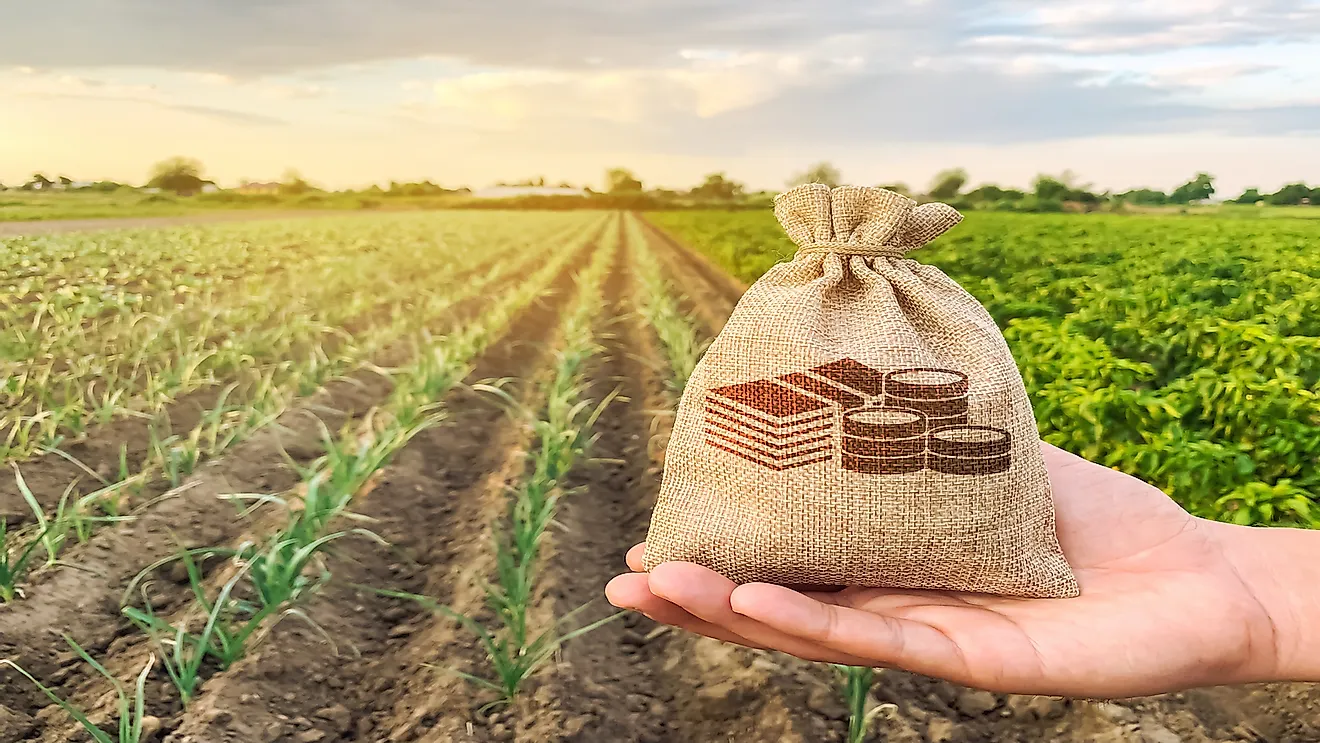 Providing Fair Pricing
Yes, many farming companies don’t get the fair pricing they deserve for their produce. Although they work to produce crops and livestock, many wholesalers still don’t offer the value they deserve for all the work. In reality, many farmers get the bare minimum they need to survive.
So, using blockchain in the agriculture market, the scenario can change. Using a blockchain-based marketplace in place, they can see sell their products to fair buyers and can even reach more buyers than they could before. This will help them negotiate the pricing more fairly. So, the farmers can get what they truly deserve.
Providing Fair Pricing
Yes, many farming companies don’t get the fair pricing they deserve for their produce. Although they work to produce crops and livestock, many wholesalers still don’t offer the value they deserve for all the work. In reality, many farmers get the bare minimum they need to survive.
So, using blockchain in the agriculture market, the scenario can change. Using a blockchain-based marketplace in place, they can see sell their products to fair buyers and can even reach more buyers than they could before. This will help them negotiate the pricing more fairly. So, the farmers can get what they truly deserve.
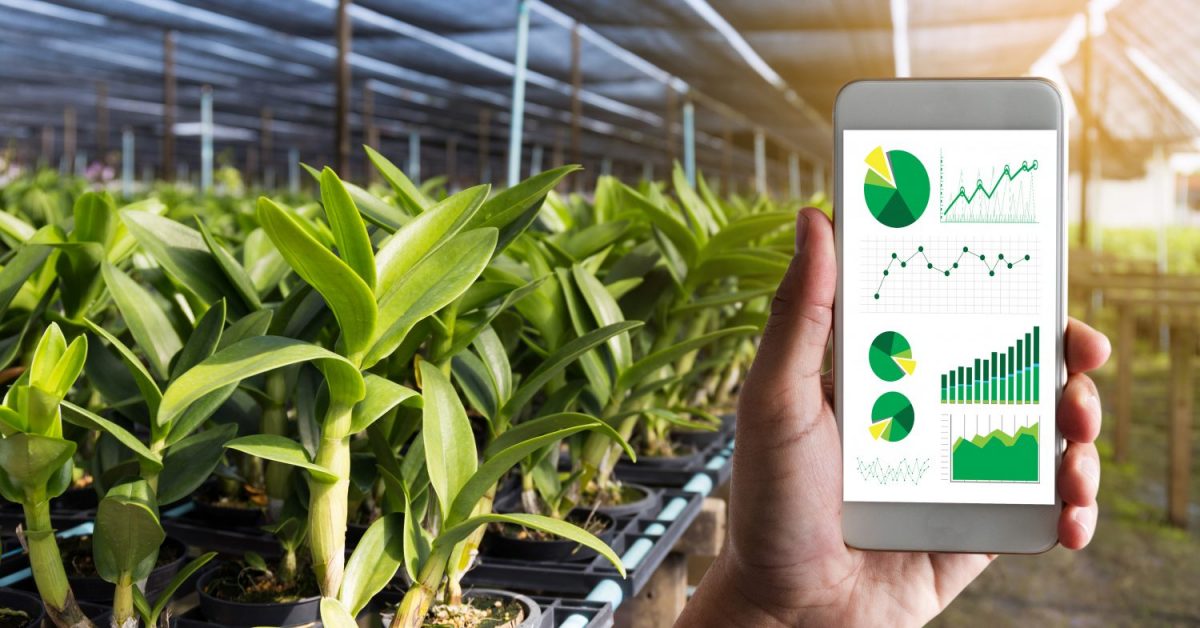 Better Farm Inventory Management
In reality, many farming companies aren’t equipped to use advanced technology to manage their inventories. This can lead to wastage of the produces and the resources. Not to mention the losses the farmers have to bear for this. So, this is a huge burden for the farmers as they don’t have the necessary tools to deal with the problem.
But with blockchain technology in agriculture, they can change that scenario for good. Blockchain is perfectly suited for inventory management. So, it can really help out the farmers in order to maintain their inventories perfectly without any issues. The truth is that blockchain can keep track of the storage environment and notify you when produce will expire. So, you can take proper measures for that.
Better Farm Inventory Management
In reality, many farming companies aren’t equipped to use advanced technology to manage their inventories. This can lead to wastage of the produces and the resources. Not to mention the losses the farmers have to bear for this. So, this is a huge burden for the farmers as they don’t have the necessary tools to deal with the problem.
But with blockchain technology in agriculture, they can change that scenario for good. Blockchain is perfectly suited for inventory management. So, it can really help out the farmers in order to maintain their inventories perfectly without any issues. The truth is that blockchain can keep track of the storage environment and notify you when produce will expire. So, you can take proper measures for that.
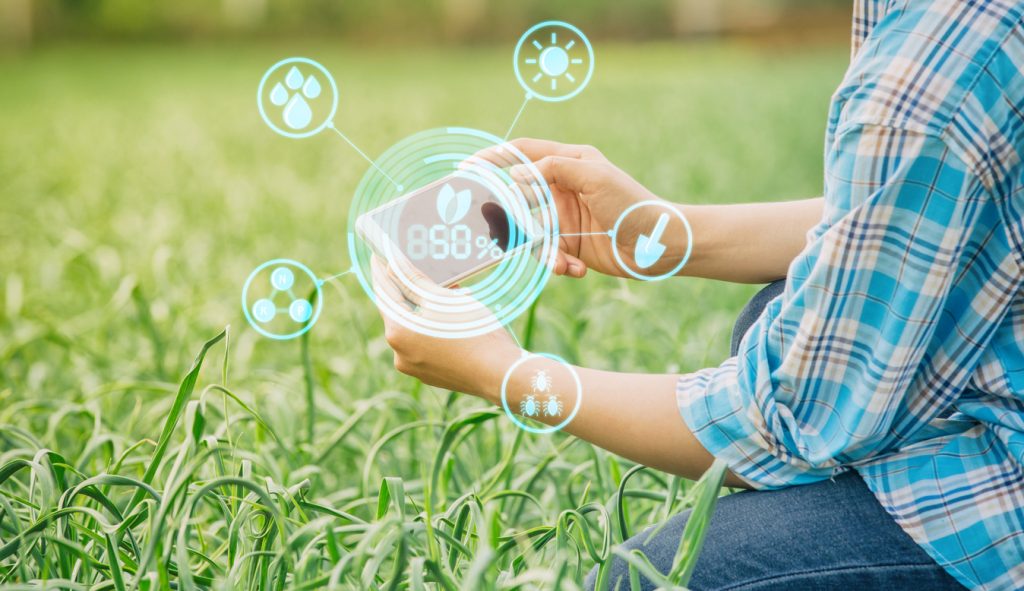 Enhancing Agricultural Supply Chain Efficiency
Another great use case of blockchain technology in agriculture is the increased efficiency throughout the industry. Due to the lack of automation and technology usage, the efficiency of this industry isn’t up to the mark. In reality, it’s more prominent for the small to mid-range farmers to not have access to high priced technologies to increase the overall efficiency of the production.
Therefore, blockchain can surely help out here. Using a blockchain immutable ledger system, it can quickly address all the elements and reduce the costing of the farming processes and increase the output’s overall efficiency.
Enhancing Agricultural Supply Chain Efficiency
Another great use case of blockchain technology in agriculture is the increased efficiency throughout the industry. Due to the lack of automation and technology usage, the efficiency of this industry isn’t up to the mark. In reality, it’s more prominent for the small to mid-range farmers to not have access to high priced technologies to increase the overall efficiency of the production.
Therefore, blockchain can surely help out here. Using a blockchain immutable ledger system, it can quickly address all the elements and reduce the costing of the farming processes and increase the output’s overall efficiency.
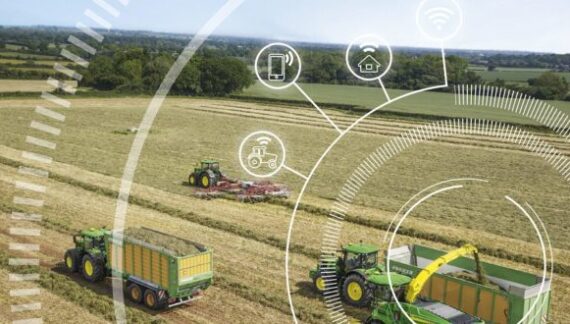 Modernizing Farm Management Software (FMS)
Another one of the benefits of blockchain in agriculture is the modernization process of farm management software. In reality, farm management software is going to become mainstream quite soon. However, this software still uses the typical client-server model to operate. Therefore, they are still not capable of offering their maximum output as they could with blockchain.
So, using blockchain, in this case, can help take the FMS to a whole new level. More so, this software will have the security they need with blockchains protection. So, the farmers won’t have to worry about cyber hacks anymore.
Modernizing Farm Management Software (FMS)
Another one of the benefits of blockchain in agriculture is the modernization process of farm management software. In reality, farm management software is going to become mainstream quite soon. However, this software still uses the typical client-server model to operate. Therefore, they are still not capable of offering their maximum output as they could with blockchain.
So, using blockchain, in this case, can help take the FMS to a whole new level. More so, this software will have the security they need with blockchains protection. So, the farmers won’t have to worry about cyber hacks anymore.
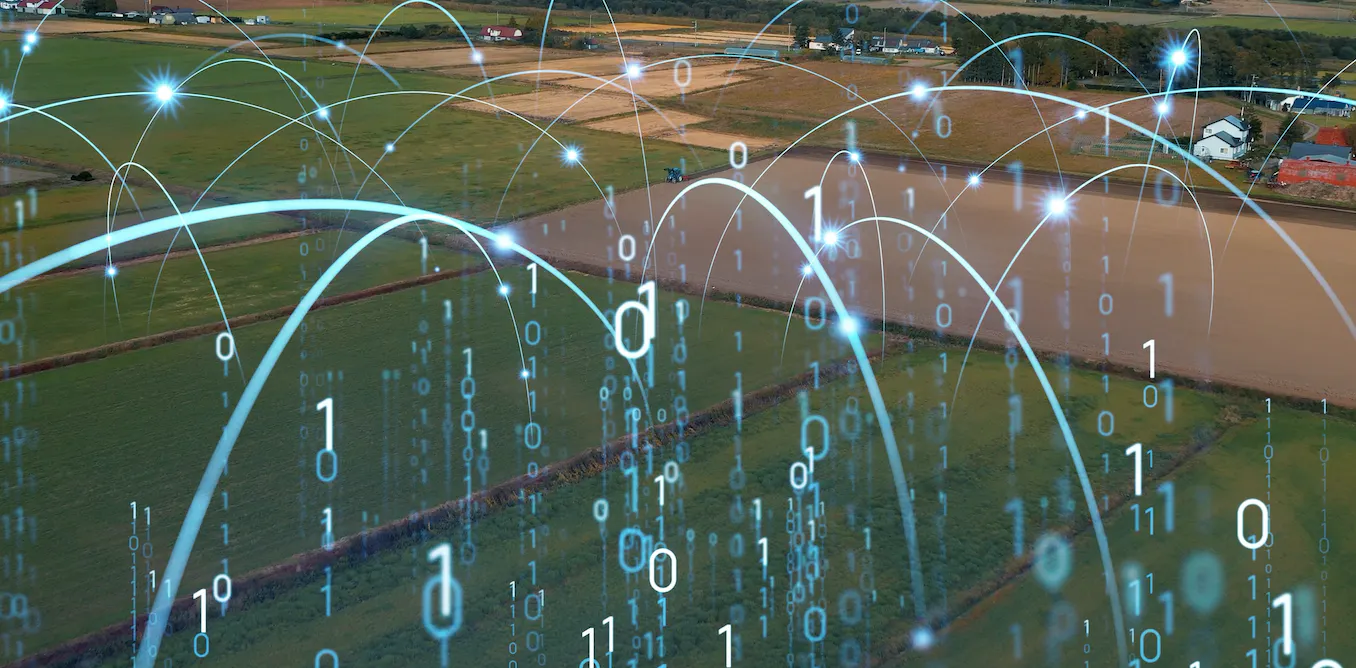 Security for IoT Optimization in Agriculture
The agriculture industry needs IoT devices to keep track of their produces. More so, these devices can even offer security and safety to their equipment as well. Using the machines, they can record the condition of the weather and the land and adjust it accordingly. More so, some devices can even forecast natural calamities from beforehand. But these devices are quite vulnerable at the moment. In many cases, the cloud services they use to store the information is weak to cyber-attacks. So, security varies greatly.
But blockchain can offer help here. The benefits of blockchain in agriculture here will be safeguarding these IoT devices and offering them a better networking system to work with.
Security for IoT Optimization in Agriculture
The agriculture industry needs IoT devices to keep track of their produces. More so, these devices can even offer security and safety to their equipment as well. Using the machines, they can record the condition of the weather and the land and adjust it accordingly. More so, some devices can even forecast natural calamities from beforehand. But these devices are quite vulnerable at the moment. In many cases, the cloud services they use to store the information is weak to cyber-attacks. So, security varies greatly.
But blockchain can offer help here. The benefits of blockchain in agriculture here will be safeguarding these IoT devices and offering them a better networking system to work with. 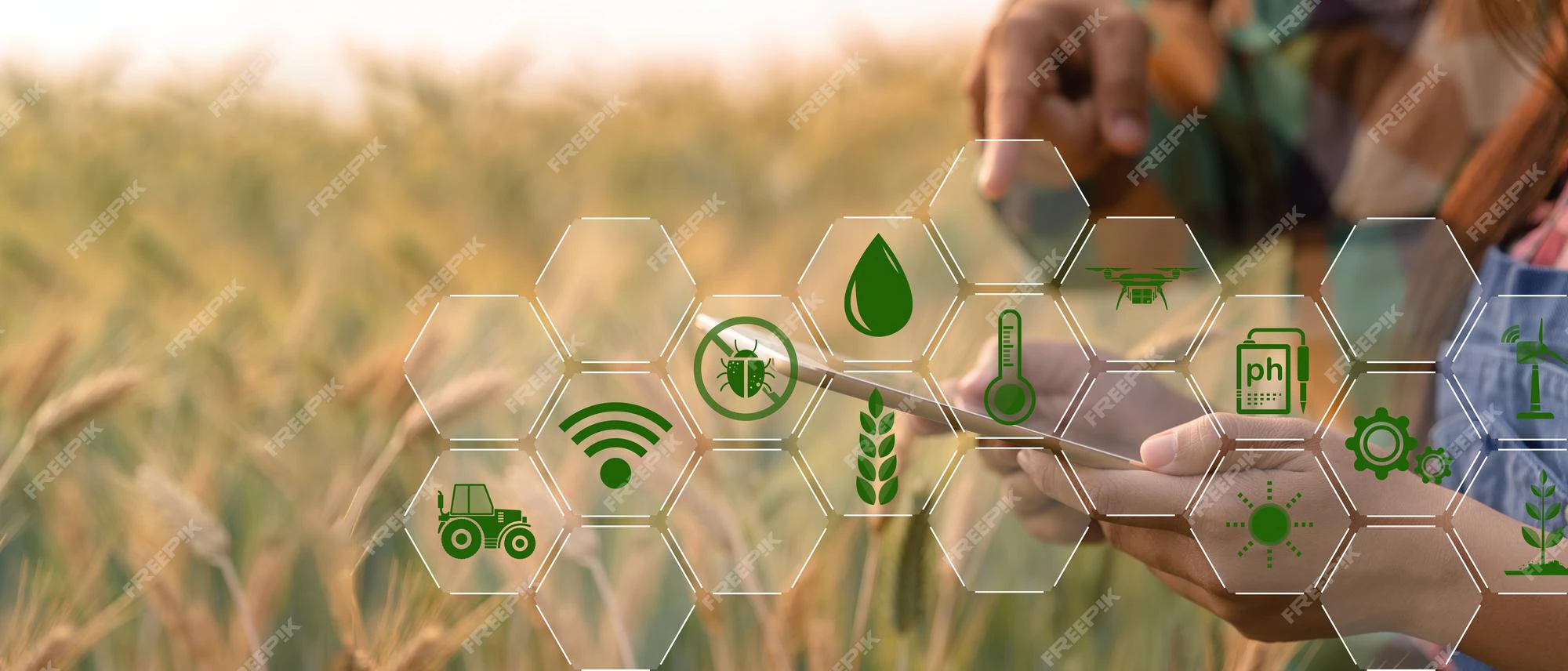 Transparency in Agricultural Subsidies
Well, we are the ones actually paying for the subsidies to agriculture. Although the government pays it, still the budget for the money comes from our taxes. But the transparency revolving around the subsidies is nonexistent. Also, in many cases, we can see favoritism, as the larger groups get more than they need, and the smaller farms don’t get enough.
Therefore, blockchain in the agriculture market can help out in increasing the transparency for this major issue. The government can use a public blockchain to transact the subsidies to the rightful farms, and the public can check whether the money is going where it should or not.
Transparency in Agricultural Subsidies
Well, we are the ones actually paying for the subsidies to agriculture. Although the government pays it, still the budget for the money comes from our taxes. But the transparency revolving around the subsidies is nonexistent. Also, in many cases, we can see favoritism, as the larger groups get more than they need, and the smaller farms don’t get enough.
Therefore, blockchain in the agriculture market can help out in increasing the transparency for this major issue. The government can use a public blockchain to transact the subsidies to the rightful farms, and the public can check whether the money is going where it should or not.
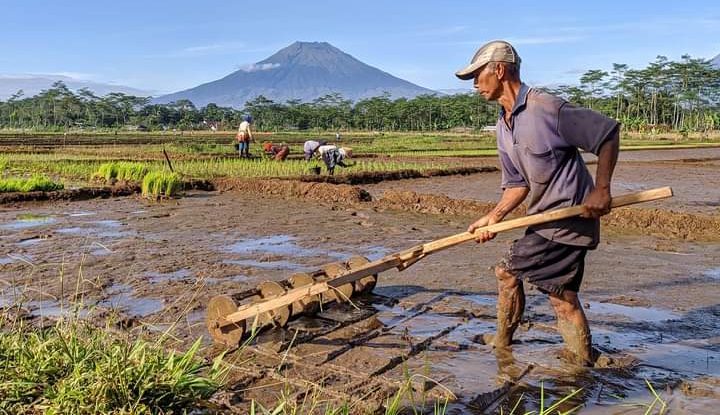 Providing Microloans for Small to Mid-sized Farmers
Another great blockchain technology application in agriculture is the option to get microloans. In reality, small to mid-sized farms need loans from time to time in order to run their business. However, the loan policy in banks has higher interest policies.
So, the companies are in a stressful situation as the interest rates can burden them with more loans. Therefore, using blockchain technology here can solve the issue for good. Blockchain can help them get microloans on the network from lenders around the world. With a small amount of loan, they can take on the burden of small interest rates, helping them run the business for a long time.
Providing Microloans for Small to Mid-sized Farmers
Another great blockchain technology application in agriculture is the option to get microloans. In reality, small to mid-sized farms need loans from time to time in order to run their business. However, the loan policy in banks has higher interest policies.
So, the companies are in a stressful situation as the interest rates can burden them with more loans. Therefore, using blockchain technology here can solve the issue for good. Blockchain can help them get microloans on the network from lenders around the world. With a small amount of loan, they can take on the burden of small interest rates, helping them run the business for a long time.
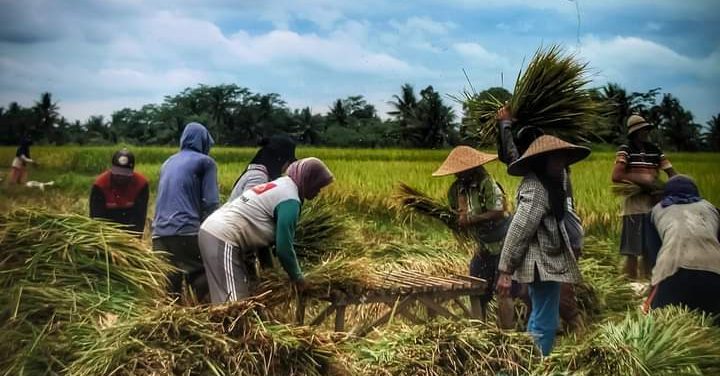 Bonus Payment from Consumer to Farmers
Another great use case of blockchain is the option to tip the farmers directly. As blockchain can offer provenance and the history of a processed product or the produce, consumers can see who was responsible for the produce in the first place. If the consumers are happy with the produce, they can just log into the blockchain platform to directly tip the farmers.
Here, the farmers’ wallets will stay connected to the system to get the customers’ tips. There are already many blockchain technology applications in agriculture that are working on this type of feature.
Bonus Payment from Consumer to Farmers
Another great use case of blockchain is the option to tip the farmers directly. As blockchain can offer provenance and the history of a processed product or the produce, consumers can see who was responsible for the produce in the first place. If the consumers are happy with the produce, they can just log into the blockchain platform to directly tip the farmers.
Here, the farmers’ wallets will stay connected to the system to get the customers’ tips. There are already many blockchain technology applications in agriculture that are working on this type of feature.
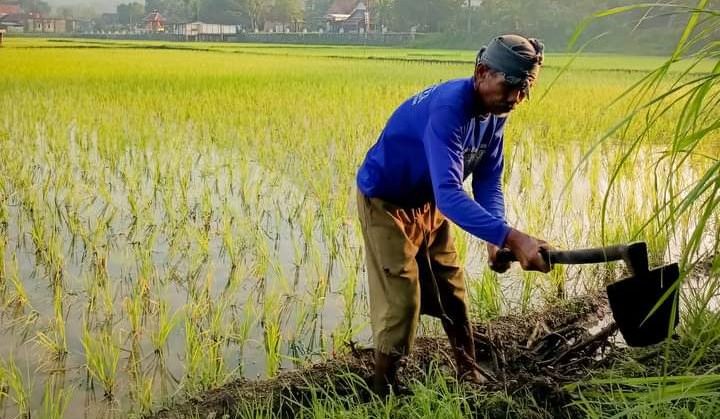 Incentivizing Sustainable Practices
Many of the practices in the agriculture industry aren’t sustainable, but they still exist. In reality, the issue is the overuse of pesticides that ultimately contaminates water for bathing, drinking, and cooking. This is a serious issue as it can harm people in various ways. So, without encouraging sustainable practices, this type of bad practice will keep existing.
Therefore, blockchain in the agriculture market can help to offer incentives to farmers who are willing to use sustainable methods rather than use chemicals that harm the consumers and the environment. Typically, in poor countries, this incentive feature can encourage them to use fewer chemicals and focus on more organic produces.
Incentivizing Sustainable Practices
Many of the practices in the agriculture industry aren’t sustainable, but they still exist. In reality, the issue is the overuse of pesticides that ultimately contaminates water for bathing, drinking, and cooking. This is a serious issue as it can harm people in various ways. So, without encouraging sustainable practices, this type of bad practice will keep existing.
Therefore, blockchain in the agriculture market can help to offer incentives to farmers who are willing to use sustainable methods rather than use chemicals that harm the consumers and the environment. Typically, in poor countries, this incentive feature can encourage them to use fewer chemicals and focus on more organic produces.
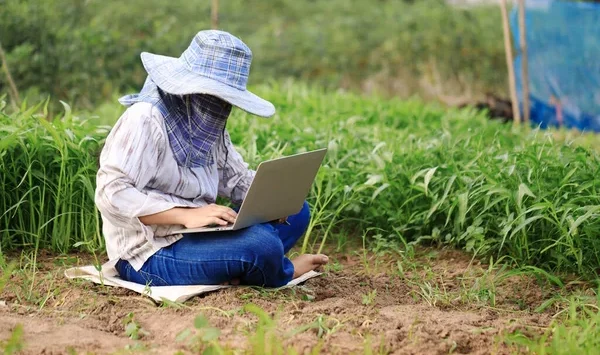 Better Accountability for Enterprises
Well, multinational companies tend to use a lot of inhuman methods to increase their efficiency, starting from illegal labor to using harmful chemicals to preserve the produce. In many cases, big corporations can also handle livestock in a very inhuman way, which is quite shocking. As there is no way for the consumer to know how the companies handle the products, they are losing their trust in them.
Therefore, blockchain technology applications in agriculture can help to increase the transparency relating to multinational companies. The consumer can see how the enterprises handle the produce and if the process is acceptable.
Better Accountability for Enterprises
Well, multinational companies tend to use a lot of inhuman methods to increase their efficiency, starting from illegal labor to using harmful chemicals to preserve the produce. In many cases, big corporations can also handle livestock in a very inhuman way, which is quite shocking. As there is no way for the consumer to know how the companies handle the products, they are losing their trust in them.
Therefore, blockchain technology applications in agriculture can help to increase the transparency relating to multinational companies. The consumer can see how the enterprises handle the produce and if the process is acceptable. Blockchain in Agriculture
Applications
In agriculture, blockchain finds a wide range of applications, and as the global adoption of the technology advances, many new applications will be added to the pool.
Broadly, the blockchain applications in agriculture and agribusiness find relevance in financial, livestock, energy, environmental, logistical, cattle breeding & livestock, and industrial management sectors.
Some specific use cases in each of these industries are shown in the section below:
Farm Inventory Management
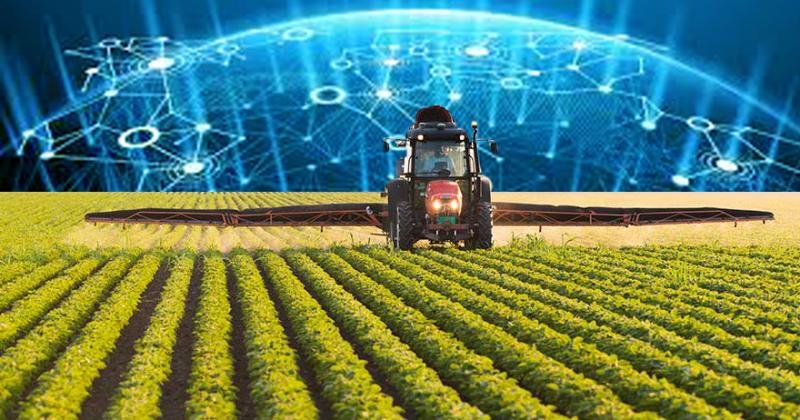 The majority of the farming organizations are grappling with innovative technologies to deal with the inventories. They lack the professional skills and expertise required to leverage cutting-edge technologies optimally.
Apart from leading to confusion, this is also spurring wastage of farm produce and agricultural resources and the farmers bear all these losses, who, in turn, don’t have the required tools and expertise to tackle the issue.
Powered with blockchain technology, the farmers can monitor the inventories and manage them with much ease.
They will have a proper understanding of various facts and actions they must take, such as:
The majority of the farming organizations are grappling with innovative technologies to deal with the inventories. They lack the professional skills and expertise required to leverage cutting-edge technologies optimally.
Apart from leading to confusion, this is also spurring wastage of farm produce and agricultural resources and the farmers bear all these losses, who, in turn, don’t have the required tools and expertise to tackle the issue.
Powered with blockchain technology, the farmers can monitor the inventories and manage them with much ease.
They will have a proper understanding of various facts and actions they must take, such as:
- Storage climate
- Time by which the product will expire
- Best actions to be taken at different stages of farm produce
Loans for Small and Midsized Farmers
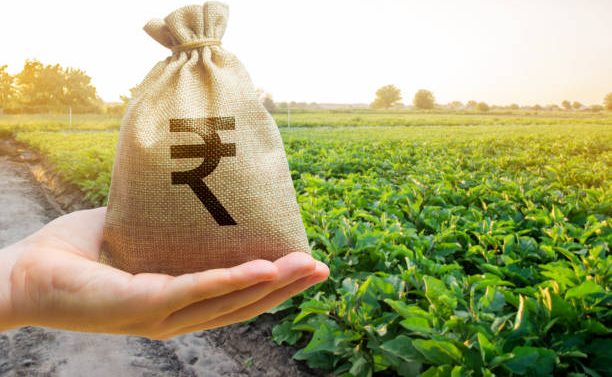 Farmers, small to medium-sized agribusiness owners, and farm produce processing companies require micro-financing from time to time. These small loans help them in keeping the businesses running, but the bank loan interest rates are high.
This loan cycle puts the farmers and small business owners under a financial strain, and they tend to take another loan, which ultimately leads to poor financial well-being.
Blockchain, on the other hand, can help the farmers get connected with the global network of lenders to get micro-loans so that they can choose the best possible interest rates. These global connections are all fair, tested, and become of paramount importance for the agribusinesses participating in international trading, such as seafood and regional specialties.
Farmers, small to medium-sized agribusiness owners, and farm produce processing companies require micro-financing from time to time. These small loans help them in keeping the businesses running, but the bank loan interest rates are high.
This loan cycle puts the farmers and small business owners under a financial strain, and they tend to take another loan, which ultimately leads to poor financial well-being.
Blockchain, on the other hand, can help the farmers get connected with the global network of lenders to get micro-loans so that they can choose the best possible interest rates. These global connections are all fair, tested, and become of paramount importance for the agribusinesses participating in international trading, such as seafood and regional specialties. Land Registrations
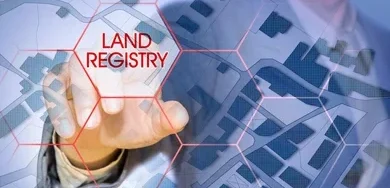 Being an incorruptible, global, and always online ledger, the blockchain records of land registrations will empower the farmers and landowners down at the grass-root level. Linking the land registration records with the universal identities of the owners will safeguard their ownership in all cases, such as wartime, floods, or earthquakes.
In India, the United Nations Development Programme (UNDP) is working in association with many partners to make the land registry more reliable and to record the transaction records throughout the land sales. This is one of the core applications of Blockchain agriculture in India and is rapidly gaining popularity there.
Being an incorruptible, global, and always online ledger, the blockchain records of land registrations will empower the farmers and landowners down at the grass-root level. Linking the land registration records with the universal identities of the owners will safeguard their ownership in all cases, such as wartime, floods, or earthquakes.
In India, the United Nations Development Programme (UNDP) is working in association with many partners to make the land registry more reliable and to record the transaction records throughout the land sales. This is one of the core applications of Blockchain agriculture in India and is rapidly gaining popularity there. Pricing Information
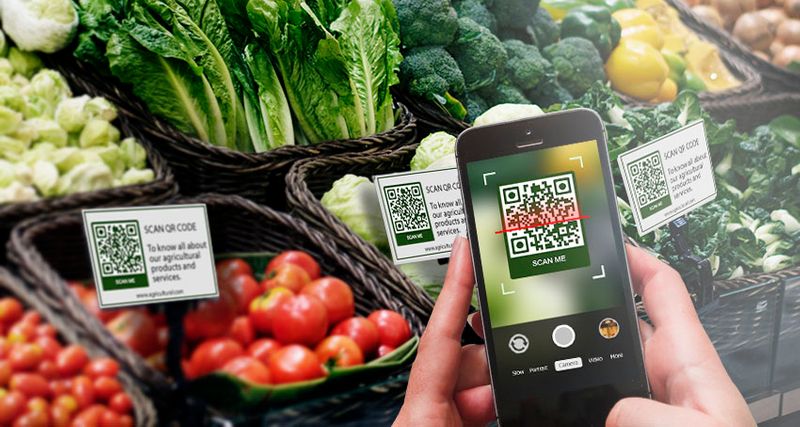 The prices of the farm produce and agricultural goods tend to fluctuate a lot, and any increase in the prices is met with a frown at many levels – stockists, food processing companies, and the consumers.
In fact, many times the farmers are unable to sell their crops at reasonable prices because of the lack of availability of proper buyers or high regional competition or hegemony in the market. This leads to the poor financial state of farmers and small business operators.
However, by using blockchain technology, consumers can access information and detailed reports with factual data to justify the increase in prices. For example, suppose there was a flood in one of the major wheat-producing regions, which led to a rise in the prices of wheat.
The consumers can scan the QR code present on the wheat packet and get to know all these details, so as to understand the price fluctuation in a better way.
The farmers can also identify the best markets to sell their products and can see the prices that the other buyers are offering.
This transparency in the entire ecosystem will strengthen the stakeholders at all levels and will certainly empower the farmers and small agribusiness owners.
The prices of the farm produce and agricultural goods tend to fluctuate a lot, and any increase in the prices is met with a frown at many levels – stockists, food processing companies, and the consumers.
In fact, many times the farmers are unable to sell their crops at reasonable prices because of the lack of availability of proper buyers or high regional competition or hegemony in the market. This leads to the poor financial state of farmers and small business operators.
However, by using blockchain technology, consumers can access information and detailed reports with factual data to justify the increase in prices. For example, suppose there was a flood in one of the major wheat-producing regions, which led to a rise in the prices of wheat.
The consumers can scan the QR code present on the wheat packet and get to know all these details, so as to understand the price fluctuation in a better way.
The farmers can also identify the best markets to sell their products and can see the prices that the other buyers are offering.
This transparency in the entire ecosystem will strengthen the stakeholders at all levels and will certainly empower the farmers and small agribusiness owners. Fisheries and Forestry
 In the fisheries sector, blockchain technology can be used to:
In the fisheries sector, blockchain technology can be used to:
- Detect and deter illegal, unregulated, and unreported fishing
- Protection of endangered marine ecosystems
- Trace the illegal fishing and betterment of supply chains
Advantages
Implementing blockchain technology in agriculture comes with many benefits, such as quality control, food safety, and food wastage management. Below, we discuss some of the most consequential advantages for all the stakeholders.
Transparency & Traceability
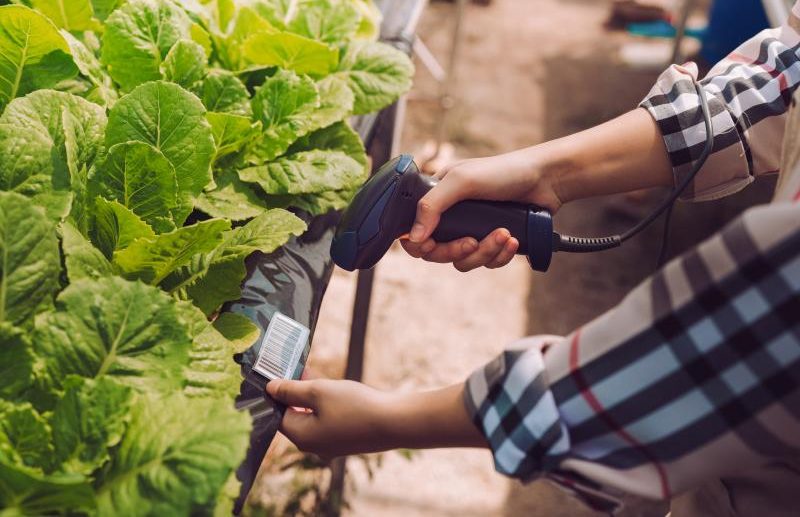 Being a decentralized incorruptible ledger, blockchain is extremely transparent to all the participants. So, be it the farmers, stockists, food processing companies, or consumers – everybody has a transparent view of data and information. This information extends beyond the simple sale, purchase, or pricing data, such as climate data, ingredient sourcing, logistics, supply chain information, seed quality, and food quality.
In the case for supply chains, namely the set of activities, facilities and services required for the sale of products. This covers the complete process, from origin (the supply of raw materials) and transformation (in the manufacturing process), all the way to the finishing stages (distribution and delivery to the final consumer).
Incorporating blockchain technology in their business, supply chains seek to improve their traceability procedures in order to optimize the quality and safety of their internal processes, minimize costs, save time, be more competitive and enrich the customer experience by providing qualitative information about their products.
This last aspect is especially relevant, since modern consumers want to know more information about their purchases. This includes the origins, procurement systems, social and environmental impact, etc. Traceability systems make it possible to obtain such history faithfully throughout the activity of supply chains.
Being a decentralized incorruptible ledger, blockchain is extremely transparent to all the participants. So, be it the farmers, stockists, food processing companies, or consumers – everybody has a transparent view of data and information. This information extends beyond the simple sale, purchase, or pricing data, such as climate data, ingredient sourcing, logistics, supply chain information, seed quality, and food quality.
In the case for supply chains, namely the set of activities, facilities and services required for the sale of products. This covers the complete process, from origin (the supply of raw materials) and transformation (in the manufacturing process), all the way to the finishing stages (distribution and delivery to the final consumer).
Incorporating blockchain technology in their business, supply chains seek to improve their traceability procedures in order to optimize the quality and safety of their internal processes, minimize costs, save time, be more competitive and enrich the customer experience by providing qualitative information about their products.
This last aspect is especially relevant, since modern consumers want to know more information about their purchases. This includes the origins, procurement systems, social and environmental impact, etc. Traceability systems make it possible to obtain such history faithfully throughout the activity of supply chains. Food Safety & Security
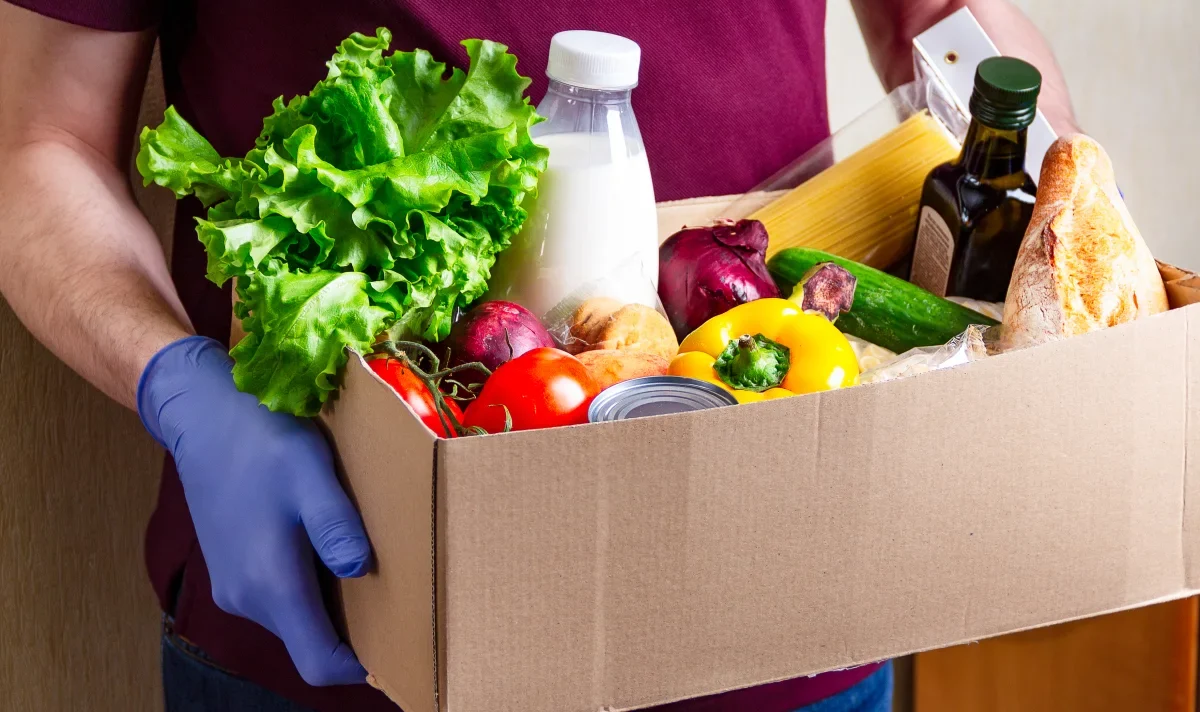 Blockchain agriculture companies have a transparent view of supply chain stats and can effectively remove the ineffective processes from the same. They can ensure optimal quality control conditions, such as opting for precision farming and leveraging IoT devices to counter the impact of weather extremes on crop production.
These devices will help farmers tackle various conditions, such as pests, soil quality changes, and identify the exact irrigation needs for optimal production.
Connecting these devices to the blockchain ledger and consistently updating the results will allow the farmers to ensure crops\’ safety.
Likewise, the companies can ensure the quality of processed food items by keeping track of their expiration dates, etc.
Blockchain agriculture companies have a transparent view of supply chain stats and can effectively remove the ineffective processes from the same. They can ensure optimal quality control conditions, such as opting for precision farming and leveraging IoT devices to counter the impact of weather extremes on crop production.
These devices will help farmers tackle various conditions, such as pests, soil quality changes, and identify the exact irrigation needs for optimal production.
Connecting these devices to the blockchain ledger and consistently updating the results will allow the farmers to ensure crops\’ safety.
Likewise, the companies can ensure the quality of processed food items by keeping track of their expiration dates, etc. Customer Engagement
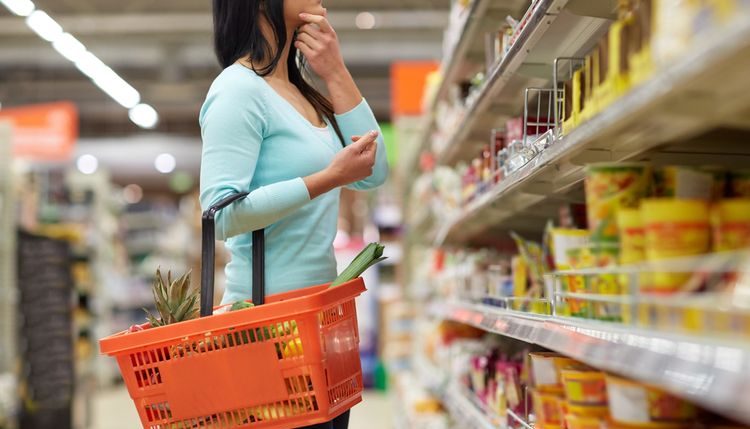 In an information-obsessed world, the brands are not leaving any stone unturned to offer their customers as much information as possible to make their purchase experience better.
As the blockchain agriculture market promises transparent information dissemination, the customers can check all the facts related to sourcing of ingredients, type of seeds, regions of ingredient, and even the name of the farmers responsible to grow them.
Thus, the customers can always rest assured that all their food items are made of quality ingredients and can verify the information claimed by the brands.
Such experiences and offerings from brands will certainly fuel the customer experience and keep them engaged for years to come.
In an information-obsessed world, the brands are not leaving any stone unturned to offer their customers as much information as possible to make their purchase experience better.
As the blockchain agriculture market promises transparent information dissemination, the customers can check all the facts related to sourcing of ingredients, type of seeds, regions of ingredient, and even the name of the farmers responsible to grow them.
Thus, the customers can always rest assured that all their food items are made of quality ingredients and can verify the information claimed by the brands.
Such experiences and offerings from brands will certainly fuel the customer experience and keep them engaged for years to come. Tracking Pathway
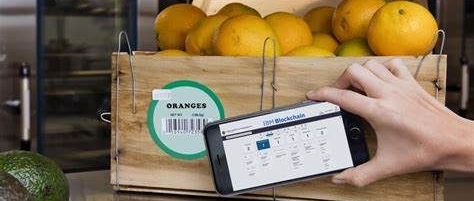 Blockchain agriculture will come with robust and insightful tracking features, such as:
Blockchain agriculture will come with robust and insightful tracking features, such as:
- Tracking ownership rights to land, crops, and patents
- Tracking and distribution of locally produced goods
- Tracking products as they pass through the supply chain
